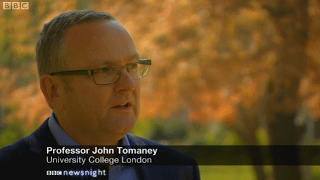The current edition of Environment and Planning: A features Prof. Andreas Faludi’s plenary paper, presented at the RSA European Conference at Delft University of Technology in May 2012. His paper: Territorial cohesion, territorialism, territoriality, and soft planning: a critical review provides a comprehensive review of recent theoretical and empirical work on the relationships between territoriality and spatial planning policy. He argues that planners (and presumably other policy-makers) must engage with multiple ‘soft’ spaces, crossing territorial borders and boundaries. This is particularly relevant in the context of cross-border and transnational regions of the European Union where the limits of territorial sovereignty and ‘container-space’ thinking become apparent. Prof. Faludi concludes his paper, however, by acknowledging that formal or ‘hard’ territorial spaces are the bases for the democratic legitmacy of decision-making and thus will continue to have a central role in territorial organisation, at least until convincing alternatives are found!
 |
| Prof. Andreas Faludi, Technical University of Delft |
 |
| Prof. John Tomaney, University College London |
Prof. John Tomaney’s plenary paper from this year’s RSA European Conference in Tampere, meanwhile is ,since last week, available as an ‘online first’ article for Progress in Human Geography, the leading geography journal for state-of-the-art review articles. His paper is specifically concerned with the role of institutions in regional development. He emphasises that institutions may be critical for local and regional development but are not a ‘quick fix’ solution. They develop over time and are specific to the qualities of particular places. Prof. Tomaney also stresses the relationship between institutions and politics –
…institutions are concerned not merely with establishing the technical conditions for growth but also with the production of social and political values…
Both papers highlight the political nature of regional development and warn against technical solutions which run the risk of losing sight of the importance of democratic legitimacy and accountability in decision-making. At the same time they recognise the limits of traditional ‘top-down’ or state-centric approaches to regional governance.